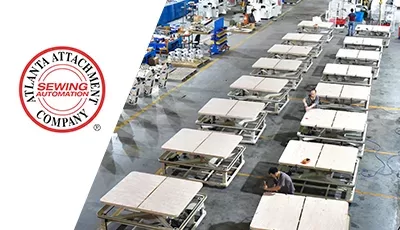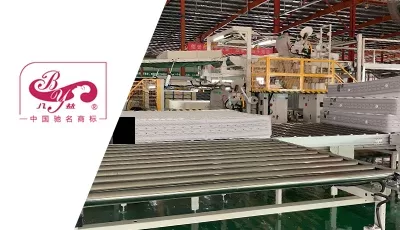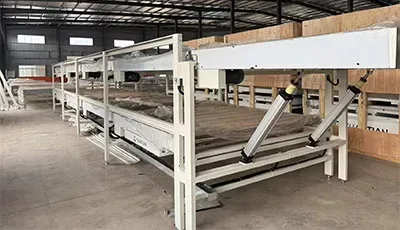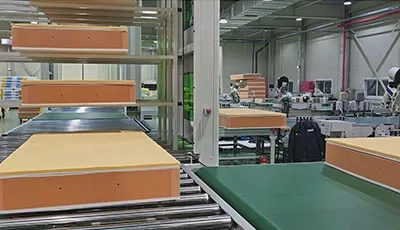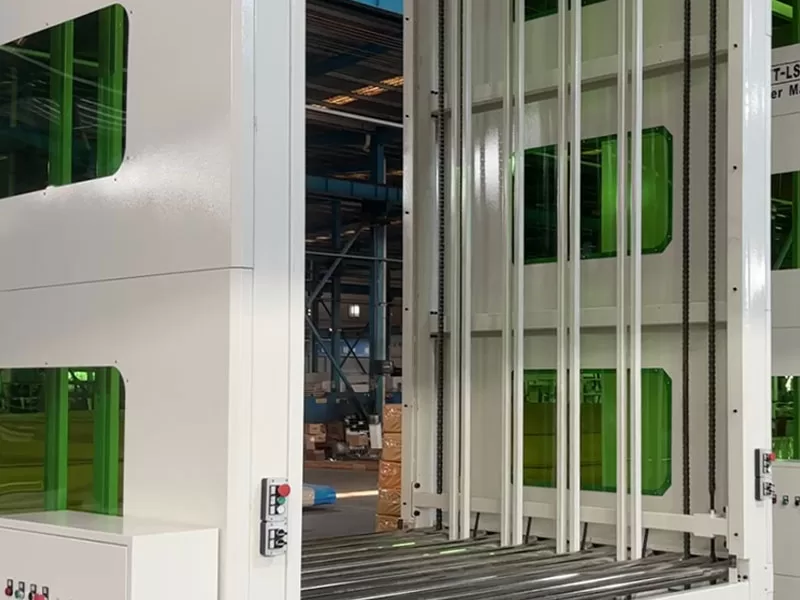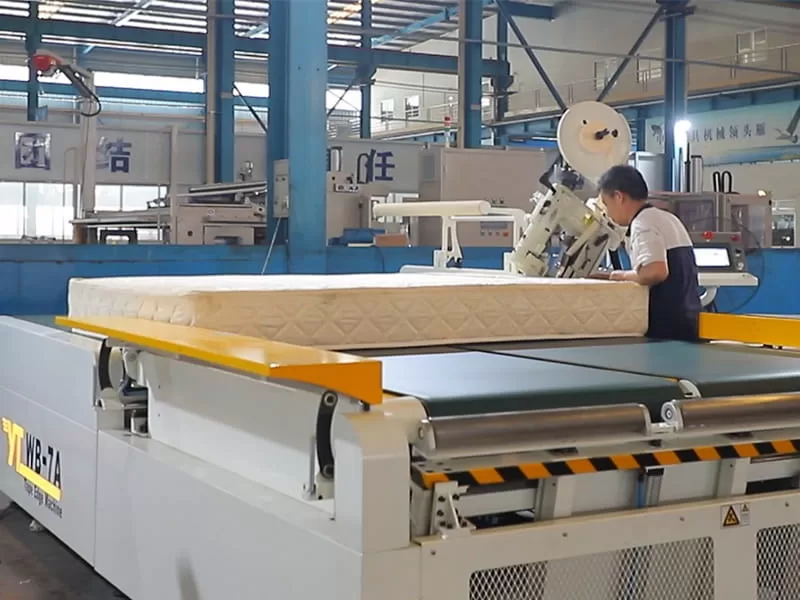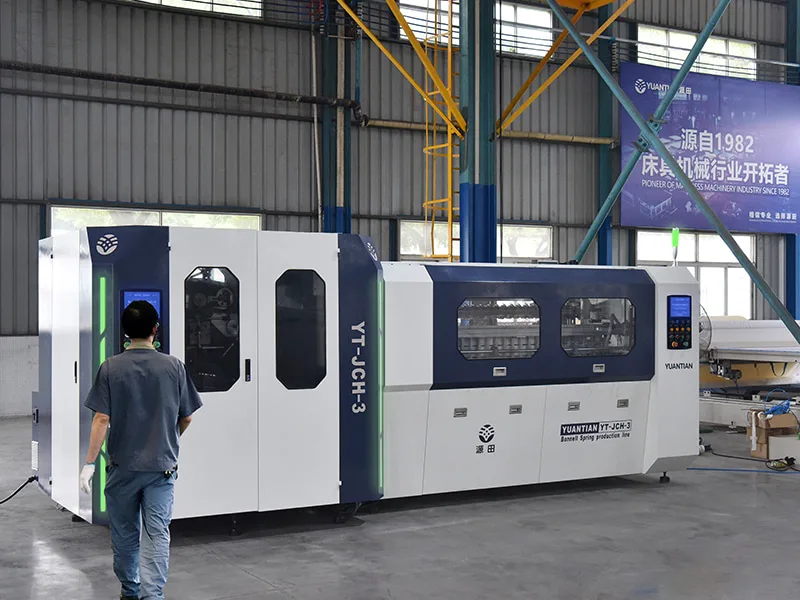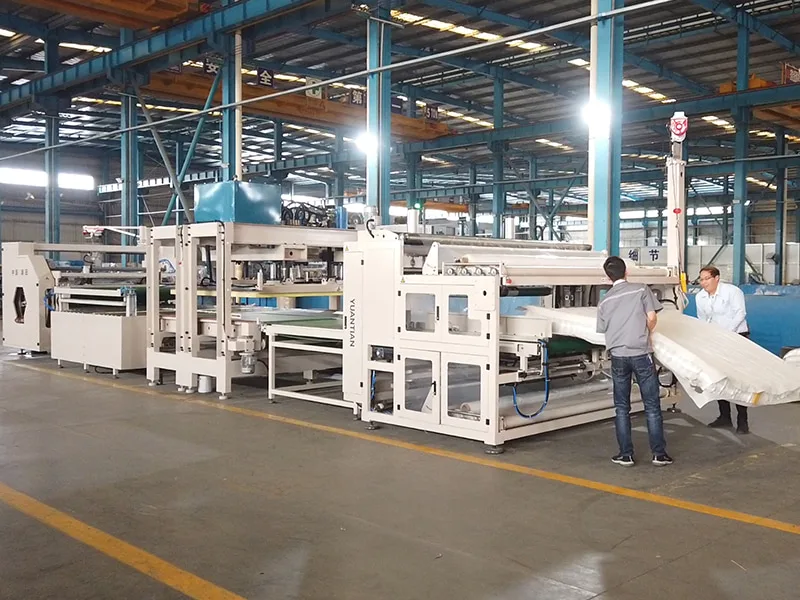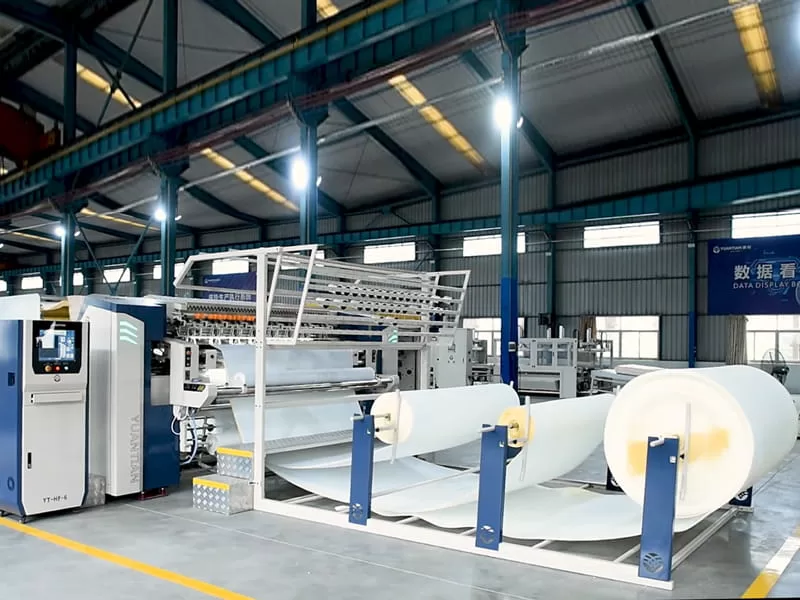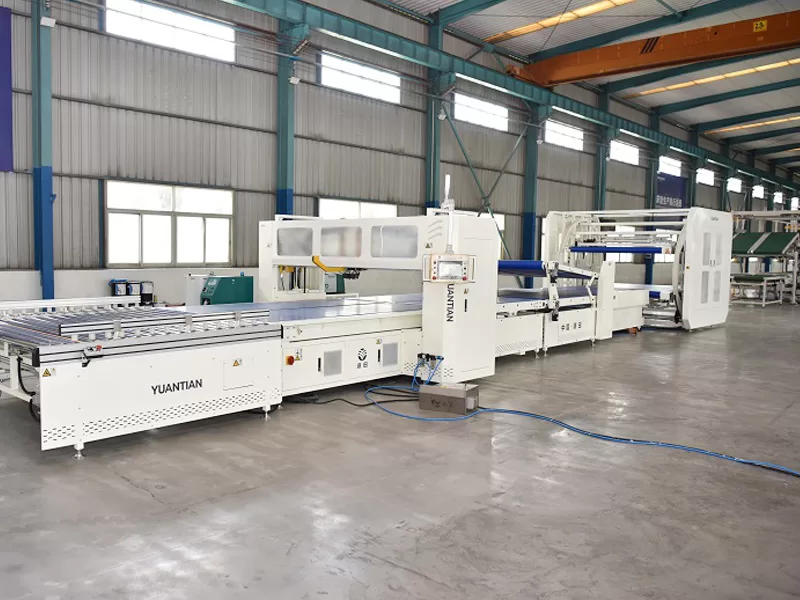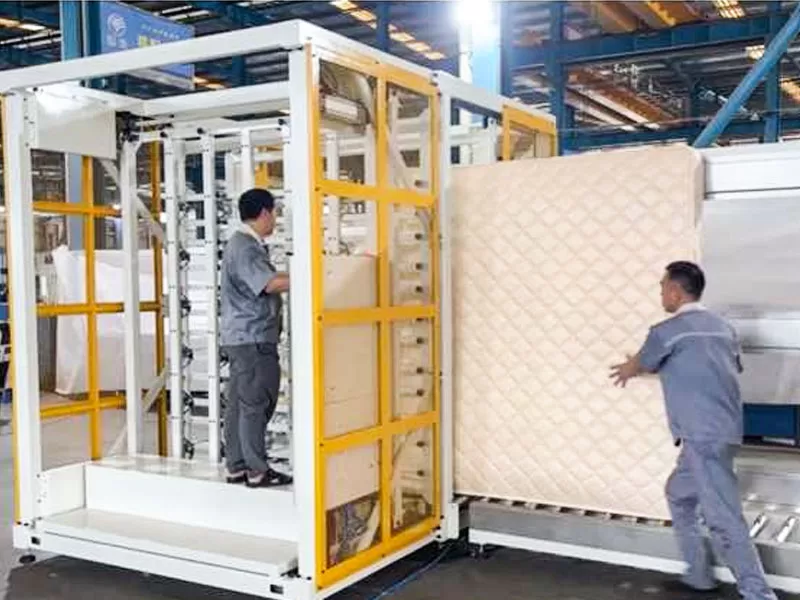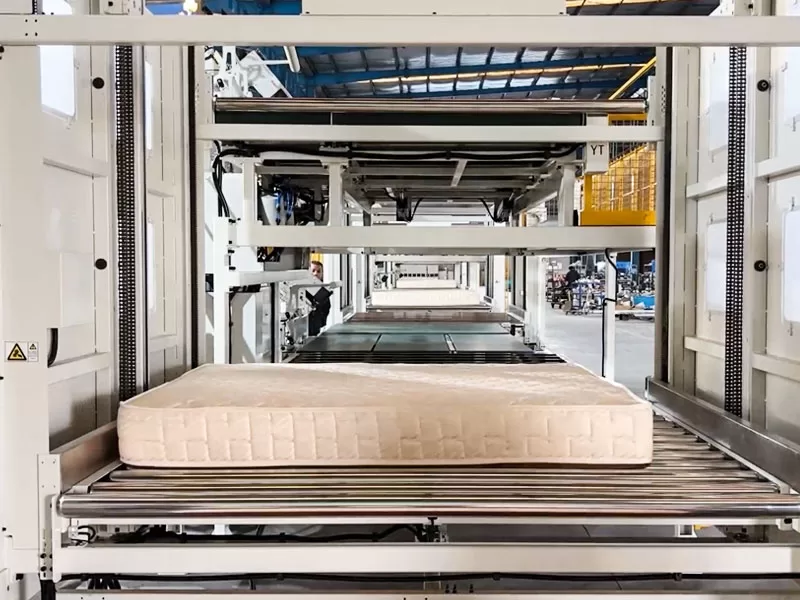- Home » The Benefits of Integrating Smart Technology into Mattress Packaging Machines
As technology advances, industries across the board are adopting smart solutions to improve efficiency, product quality, and overall productivity. The mattress manufacturing industry is no exception, with a growing trend towards integrating smart technology into various stages of production. One crucial area where smart technology has proven particularly beneficial is in mattress packaging machines. This article explores the multiple benefits of incorporating smart technology into mattress packaging machines, helping manufacturers enhance their operations.
Increased Efficiency and Speed
Faster Packaging Processes
The most significant benefit of integrating smart technology into mattress packaging machines is that it escalates the overall speed of the operation. In a traditional approach, the entire packaging process can be labor-intensive and time-consuming as it often requires multiple manual changes to get the desired consistent result. With automation and sensor-based systems on board, the smart packaging machine significantly accelerates the packaging process with no compromise on its quality.
By saving time from these repetitive tasks, smart packaging machines enable manufacturers to produce more units within a short period of time, hence increasing production throughput. Moreover, these machines automatically regulate different mattress sizes, thicknesses, and materials with very minimal downtimes, hence boosting productivity.
Minimized Human Error
Automation minimizes the chance of human error throughout the packaging process. Most of the traditional methods involve manual measures, adjustments, and supervision that may lead to inconsistency in results or even damage to the product.
Smart machines use sensors and algorithms that ensure preciseness in compressing, rolling, and sealing mattresses with pre-defined parameters, hence minimizing the risks of errors. This consistency means fewer damaged products, less rework, and saving time and materials.
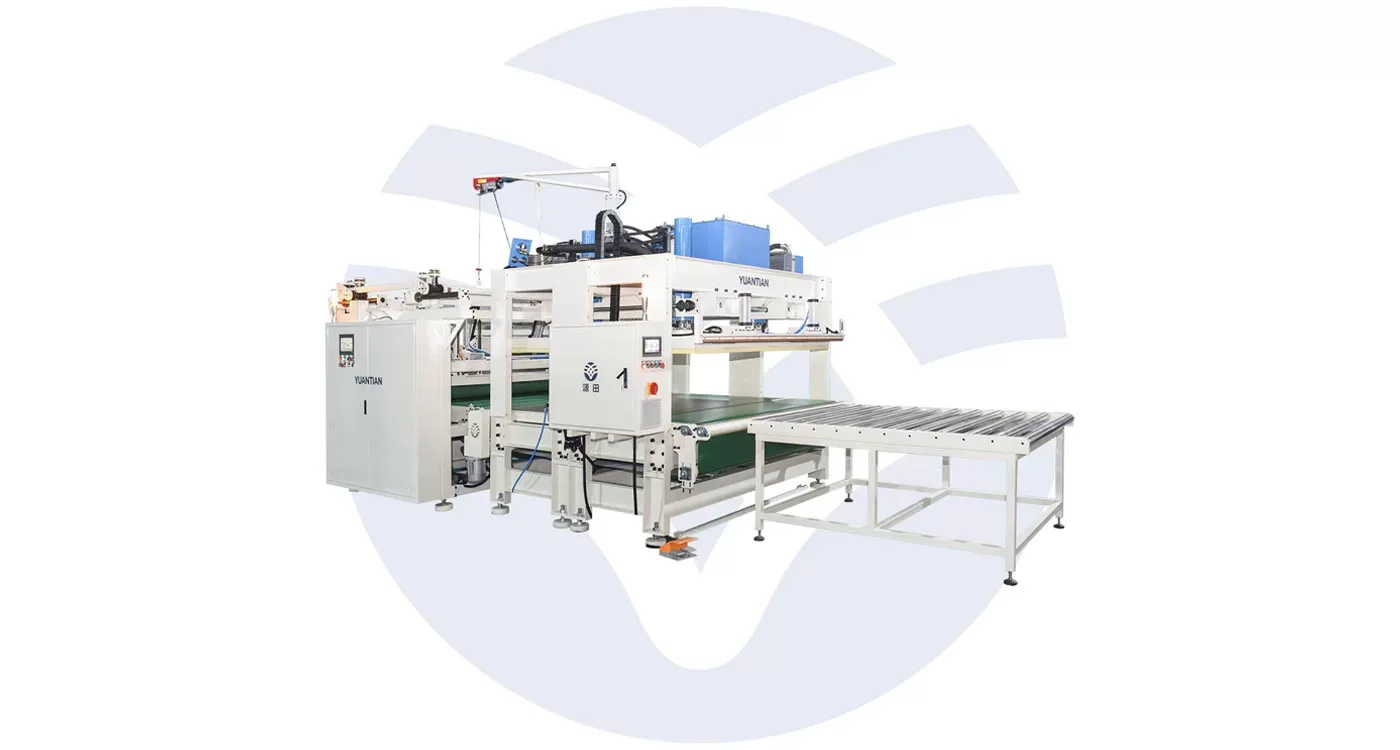
Enhanced Product Quality
Precise Control of Packaging Parameters
With smart technology, it is possible to have precise control over the critical parameters of packaging in place like compression force, temperature for sealing, and the speed of rolling or wrapping. Ensuring that each mattress attains proper and secure packaging with an appreciable level of consistency in order to protect the product against damage during storage and transportation.
Too much compression may damage certain types of mattresses, especially those made from memory foam or latex, while too little may result in poor usage of packaging materials and increased shipping costs. Smart packaging machines can observe such variables in real-time and make changes as needed to create an ideal, consistent package for each mattress, regardless of size or material composition.
Consistent Sealing and Wrapping
Smart packaging machines come equipped with automated sealing technology that ensures each mattress is tightly, securely, and uniformly wrapped. Inadequate sealing inconsistent in uniformity may encourage exposure to dust, moisture, or other forms of contaminants that can degrade the quality of a mattress even before the customer uses it. Using smart technology, manufacturers can ensure to seal each mattress correctly to extend its shelf life and protect it during transport.
Improved Sustainability and Waste Reduction
Optimized Material Usage
One of the main issues when packaging mattresses is protecting the product with material efficiency in mind. Most of the time, conventional methods of packaging result in excessive use of plastic wraps, foam padding, and other materials that may contribute to waste. In smart technology, material consumption is optimized, just enough to hold the item in place, no more.
The data analytics and machine learning algorithms built into smart packaging machines help to calculate the perfect material consumption of each product in real-time. This reduces not just waste but the cost of materials, hence contributing toward a much more viable and cost-effective method of packaging.
Energy Efficiency
Most of these intelligent packaging machines are designed to save energy by consuming less power. For example, if the machine is not in operation, it switches over to a low-power mode or operates based on workload volume. The previous versions of such traditional machines continued to consume energy when not in use, although at a lesser rate. By integrating smart technology, manufacturers can reduce their energy consumption, leading to lower operational costs and a smaller environmental footprint.
Real-Time Monitoring and Data Analytics
Monitoring for Maintenance Needs
Probably one of the most important benefits of smart packaging machines is real-time monitoring and prediction of maintenance. Most traditional packaging machines rely on manual inspections for wear and tear or the need for maintenance, which often results in unexpected breakdowns and production delays.
Smart machines are fitted with sensors that closely monitor the health of the machine, recognizing symptoms that may indicate an imminent malfunction, such as abnormal vibration or spiking temperatures.
These systems alert the operators when any maintenance is required, thus enabling proactive repairs to minimize unplanned downtimes. Predictive maintenance ensures the longevity of the machine, guarantees consistent performance, and reduces long-term operational costs.
Data-Driven Decision Making
Smart packaging machines can also gather a lot of data during the packaging process, hence much-valued information on production efficiency, material usage, and machine performances. Further data analysis can be used to identify bottlenecks, workflows, and optimize informed decisions on future production runs.
For example, manufacturers can use data analytics to track how much packaging material is used over time, identify patterns that lead to material waste, and adjust the process to minimize it. Additionally, data from smart machines can help manufacturers improve their inventory management, ensuring that they always have the necessary materials on hand without overstocking.
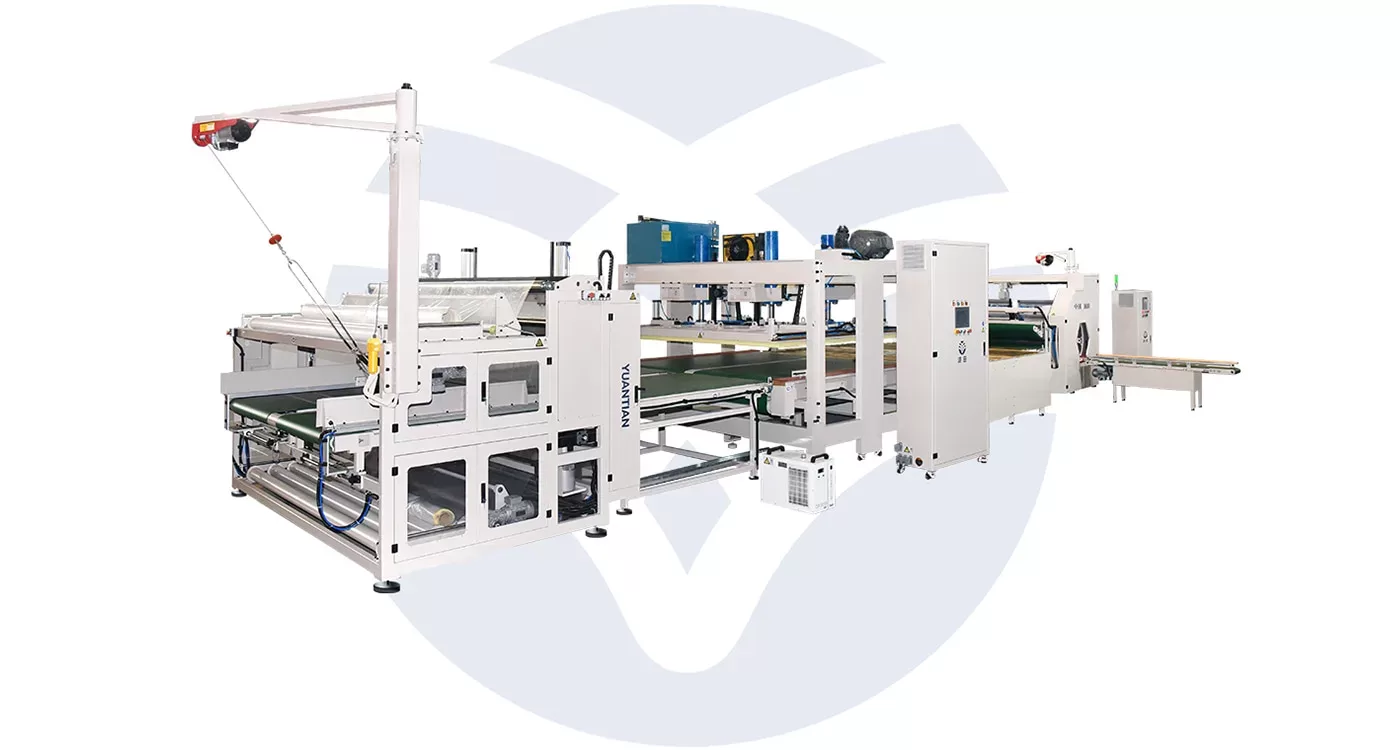
Flexibility and Customization
Adaptability to Different Mattress Types
Various mattress manufacturers in the market have to package everything from standard innerspring to sophisticated memory foam or hybrid models. These machines struggle economically to deal with the varied sizes and material mixes and usually require manual adjustments or retooling between product runs. Smart packaging machines, however, are designed to be adaptable, automatically adjusting for different mattress types and sizes with minimal intervention.
This can be quite advantageous, as it enables manufacturers to rapidly change over to different product lines when it becomes necessary, and the consistency in packaging will remain uninterrupted. Moreover, smart machines store various parameters of packaging for each type of product, which enables a smooth transition from one run to another.
Customizable Packaging Solutions
The packaging solutions provided by smart packaging machines can also be more inclined toward specific branding or product needs. Whereas some manufacturers emphasize eco-friendly materials, others use high-quality, premium packaging to brand a mattress as luxurious.
With smart technology, changing the way that manufacturing is performed in order to meet these needs is quite simple, thus enabling it to answer various calls of customers’ preferences and market segments.
Conclusion
The integration of smart technology into mattress packaging machines brings along a wide range of benefits to manufacturers, which include increased efficiency, waste reduction, quality enhancement of the product, and, additionally, real-time monitoring. Precise, automated, and data-driven insight from smart machines enables a manufacturer to construct an efficient operation with reduced costs and consistent production quality.
As the mattress industry continues to shape a bright future, smart packaging technology becomes more important, helping manufacturers stay competitive, meet consumer demands, and improve sustainability practices.
Связанные с ними товары
